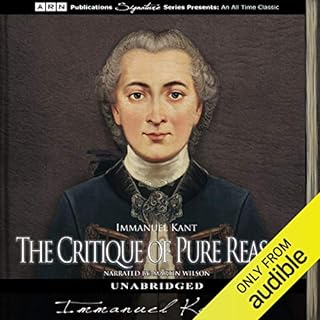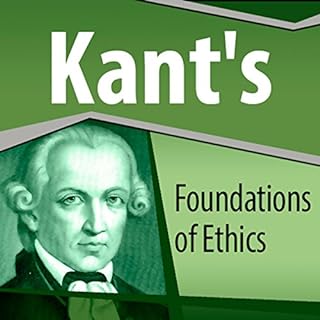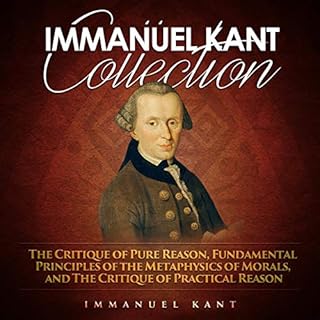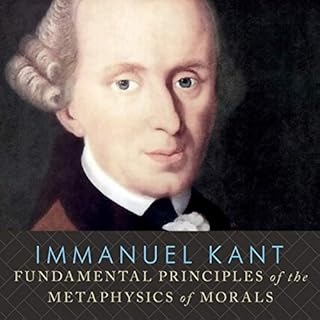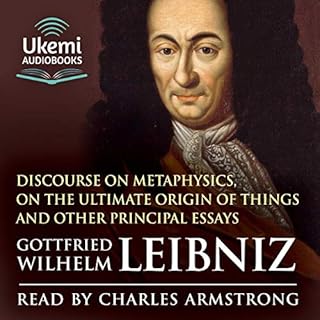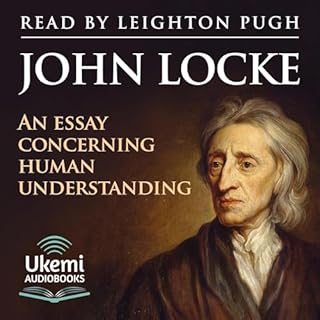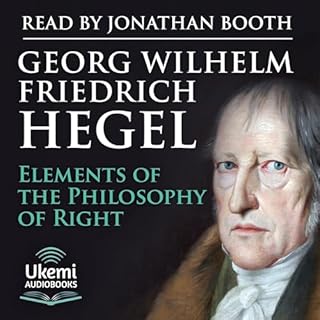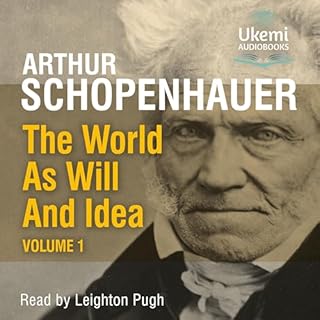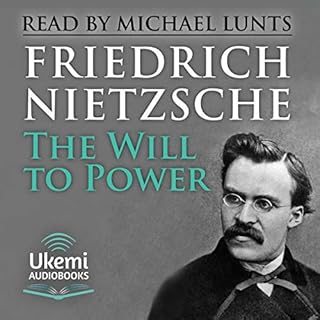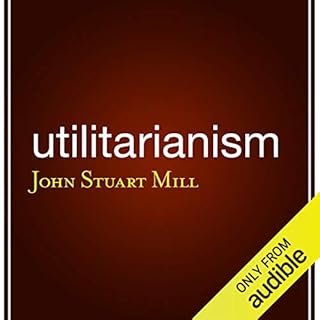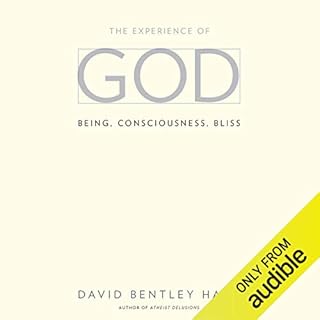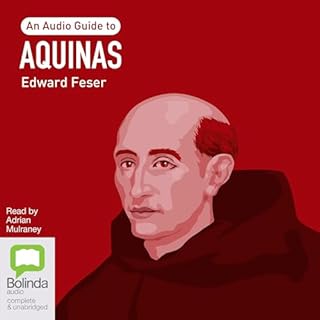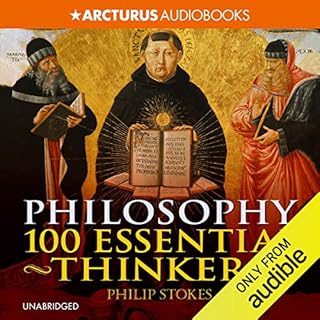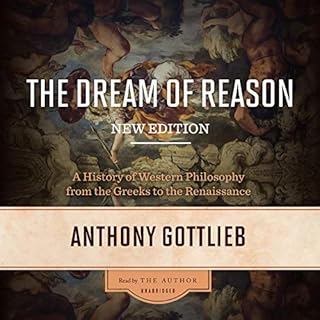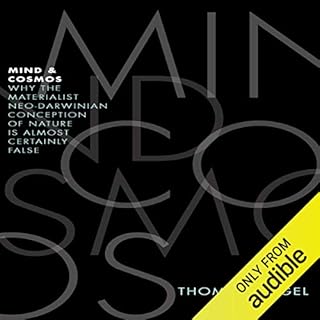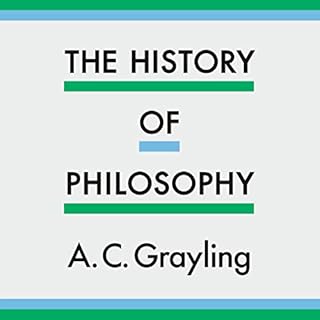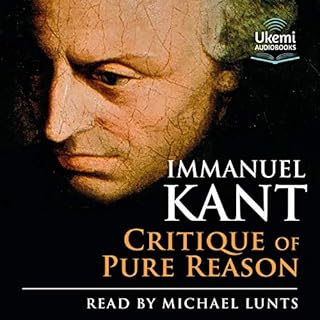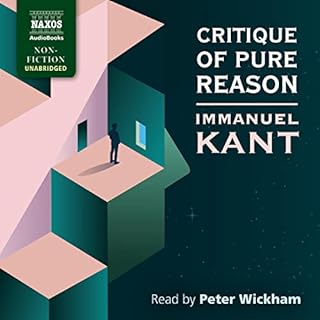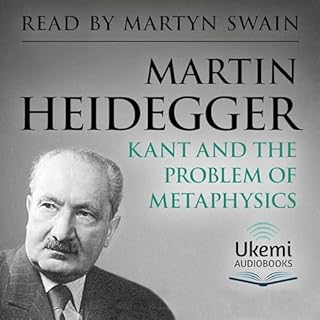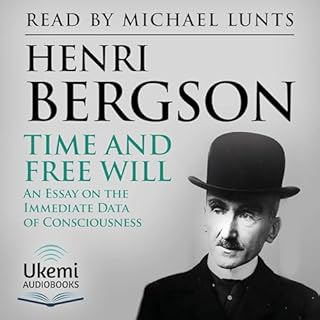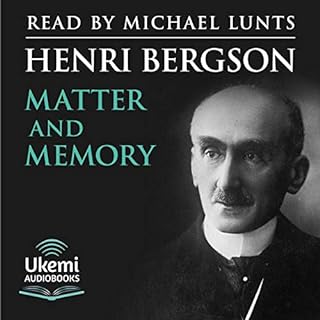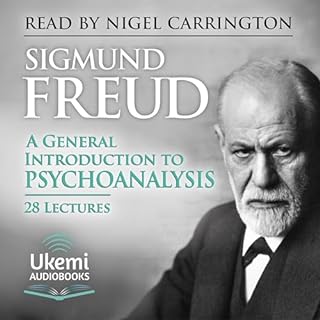
Critique of Judgement
Failed to add items
Add to Cart failed.
Add to Wish List failed.
Remove from wishlist failed.
Adding to library failed
Follow podcast failed
Unfollow podcast failed
 Prime members: New to Audible?
Prime members: New to Audible?Get 2 free audiobooks during trial.
Buy for $15.48
No default payment method selected.
We are sorry. We are not allowed to sell this product with the selected payment method
-
Narrated by:
-
Michael Lunts
-
By:
-
Immanuel Kant
About this listen
Kant’s Critique of Judgement is the third and final part of his series of Critiques, which began with Critique of Pure Reason and continued with Critique of Practical Reason.
Critique of Judgement was published in 1790 and is divided into two parts, the Critique of Aesthetic Judgement and the Critique of Teleological Judgement.
Our ‘judgements of taste’, as Kant describes our aesthetic judgements, have both a personal and a universal function: personal because we have a subjective aesthetic response to the ‘agreeable’, the ‘beautiful’, the ‘sublime’ and the ‘good’; but also there is a ‘universal’ aspect because our aesthetic response has a ’disinterested’ element. This brings under Kant’s spotlight, for example, the concept of beauty and the perception of beauty. Teleology, the idea that something has an end or purpose, is discussed in the second section. Here Kant, though not an atheist, questions, among other things, metaphysical proofs of God, including God as an intelligent designer.
Translation of Critique of Judgement by James Creed Meredith.
Public Domain (P)2018 Ukemi Productions LtdListeners also enjoyed...
-
Critique of Practical Reason
- By: Immanuel Kant, Thomas Kingsmill Abbott - translator
- Narrated by: Michael Lunts
- Length: 7 hrs and 6 mins
- Unabridged
-
Overall5 out of 5 stars 21
-
Performance5 out of 5 stars 20
-
Story5 out of 5 stars 20
The Critique of Practical Reason was published in 1788, seven years after Immanuel Kant's major work, Critique of Pure Reason. In it, Kant sets out his moral philosophy - and it proved a seminal text in the history of the subject. He argues that the summum bonum (the highest good) of life is that rather than just pursuing happiness, people should inhabit a moral dimension that enables them to deserve the happiness that God can give. Though much shorter than Critique of Pure Reason, this is the sourcebook for Kant’s ethical doctrines.
-
5 out of 5 stars
-
Worldly wisdom by sacred philosophy
- By jeon dong on 07-14-20
By: Immanuel Kant, and others
-
Phenomenology of Spirit
- By: G. W. F. Hegel, A. V. Miller - translator, J. N. Findlay
- Narrated by: David DeVries
- Length: 29 hrs and 38 mins
- Unabridged
-
Overall4.5 out of 5 stars 149
-
Performance4.5 out of 5 stars 119
-
Story4.5 out of 5 stars 118
Perhaps one of the most revolutionary works of philosophy ever presented, The Phenomenology of Spirit is Hegel's 1807 work that is in numerous ways extraordinary. A myriad of topics are discussed, and explained in such a harmoniously complex way that the method has been termed Hegelian dialectic. Ultimately, the work as a whole is a remarkable study of the mind's growth from its direct awareness to scientific philosophy, proving to be a difficult yet highly influential and enduring work.
-
5 out of 5 stars
-
My favorite audible book of the 700 I've rated
- By Gary on 01-02-16
By: G. W. F. Hegel, and others
-
Being and Time
- By: Martin Heidegger
- Narrated by: Martyn Swain, Taylor Carman
- Length: 23 hrs and 18 mins
- Unabridged
-
Overall4.5 out of 5 stars 110
-
Performance5 out of 5 stars 93
-
Story4.5 out of 5 stars 93
Being and Time was published in 1927 during the Weimar period in Germany, a time of political, social and economic turmoil. Heidegger himself did not escape the pressures and his nationalism, and undeniable anti-Semitism in the following decades cast a shadow over the man, but not the work. Being and Time is not coloured by expressions of his later views (unlike other writings) and remains an outstanding document.
-
4 out of 5 stars
-
Surprised it works as audio
- By Anonymous on 02-02-20
By: Martin Heidegger
-
The Critique of Pure Reason
- By: Immanuel Kant
- Narrated by: Martin Wilson
- Length: 22 hrs and 39 mins
- Unabridged
-
Overall4.5 out of 5 stars 89
-
Performance4.5 out of 5 stars 70
-
Story4.5 out of 5 stars 69
Published in 1797, the Critique of Pure Reason is considered to be one of the foremost philosophical works ever written. In the Critique of Pure Reason, Immanuel Kant explores the foundation of human knowledge and its limits, as well as man's ability to engage in metaphysics.
-
3 out of 5 stars
-
Excellent book, Wrong medium
- By Joshua J Eller on 01-15-19
By: Immanuel Kant
-
Prolegomena to Any Future Metaphysics that Will Be Able to Present Itself as a Science
- By: Immanuel Kant
- Narrated by: Michael Lunts
- Length: 5 hrs and 45 mins
- Unabridged
-
Overall4.5 out of 5 stars 23
-
Performance5 out of 5 stars 21
-
Story5 out of 5 stars 20
Kant's Prolegomena, although a small book, is without doubt the most important of his writings, writes the translator, Paul Carus. Prolegomena means, literally, prefatory or introductory remarks, and it furnishes us with a key to his main work, The Critique of Pure Reason; in fact, it is an extract containing all the salient ideas of Kant's system. It approaches the subject in the simplest and most direct way and is therefore best adapted as an introduction into his philosophy.
-
5 out of 5 stars
-
A classic worth reading
- By Anonymous User on 04-17-23
By: Immanuel Kant
-
Kant's Foundations of Ethics
- By: Immanuel Kant
- Narrated by: Ray Childs
- Length: 5 hrs and 4 mins
- Unabridged
-
Overall4.5 out of 5 stars 32
-
Performance4.5 out of 5 stars 28
-
Story4.5 out of 5 stars 28
Kant published this work in 1795, during the aftermath of the American Revolution and the French Revolution. The high hopes of the European Enlightenment had been dampened by the Reign of Terror in which tens of thousands of people died, and the perpetual cycle of war and temporary armistice seemed to be inescapable. Kant's essay is best known as an early articulation of the idea of a league of nations that could bring an end to all hostilities. Today, the United Nations continues to pursue that dream, but lasting peace still seems to be wishful thinking.
-
5 out of 5 stars
-
The Best on The Foundation of the Metaphysics of Morals
- By JCW on 07-28-18
By: Immanuel Kant
-
Critique of Practical Reason
- By: Immanuel Kant, Thomas Kingsmill Abbott - translator
- Narrated by: Michael Lunts
- Length: 7 hrs and 6 mins
- Unabridged
-
Overall5 out of 5 stars 21
-
Performance5 out of 5 stars 20
-
Story5 out of 5 stars 20
The Critique of Practical Reason was published in 1788, seven years after Immanuel Kant's major work, Critique of Pure Reason. In it, Kant sets out his moral philosophy - and it proved a seminal text in the history of the subject. He argues that the summum bonum (the highest good) of life is that rather than just pursuing happiness, people should inhabit a moral dimension that enables them to deserve the happiness that God can give. Though much shorter than Critique of Pure Reason, this is the sourcebook for Kant’s ethical doctrines.
-
5 out of 5 stars
-
Worldly wisdom by sacred philosophy
- By jeon dong on 07-14-20
By: Immanuel Kant, and others
-
Phenomenology of Spirit
- By: G. W. F. Hegel, A. V. Miller - translator, J. N. Findlay
- Narrated by: David DeVries
- Length: 29 hrs and 38 mins
- Unabridged
-
Overall4.5 out of 5 stars 149
-
Performance4.5 out of 5 stars 119
-
Story4.5 out of 5 stars 118
Perhaps one of the most revolutionary works of philosophy ever presented, The Phenomenology of Spirit is Hegel's 1807 work that is in numerous ways extraordinary. A myriad of topics are discussed, and explained in such a harmoniously complex way that the method has been termed Hegelian dialectic. Ultimately, the work as a whole is a remarkable study of the mind's growth from its direct awareness to scientific philosophy, proving to be a difficult yet highly influential and enduring work.
-
5 out of 5 stars
-
My favorite audible book of the 700 I've rated
- By Gary on 01-02-16
By: G. W. F. Hegel, and others
-
Being and Time
- By: Martin Heidegger
- Narrated by: Martyn Swain, Taylor Carman
- Length: 23 hrs and 18 mins
- Unabridged
-
Overall4.5 out of 5 stars 110
-
Performance5 out of 5 stars 93
-
Story4.5 out of 5 stars 93
Being and Time was published in 1927 during the Weimar period in Germany, a time of political, social and economic turmoil. Heidegger himself did not escape the pressures and his nationalism, and undeniable anti-Semitism in the following decades cast a shadow over the man, but not the work. Being and Time is not coloured by expressions of his later views (unlike other writings) and remains an outstanding document.
-
4 out of 5 stars
-
Surprised it works as audio
- By Anonymous on 02-02-20
By: Martin Heidegger
-
The Critique of Pure Reason
- By: Immanuel Kant
- Narrated by: Martin Wilson
- Length: 22 hrs and 39 mins
- Unabridged
-
Overall4.5 out of 5 stars 89
-
Performance4.5 out of 5 stars 70
-
Story4.5 out of 5 stars 69
Published in 1797, the Critique of Pure Reason is considered to be one of the foremost philosophical works ever written. In the Critique of Pure Reason, Immanuel Kant explores the foundation of human knowledge and its limits, as well as man's ability to engage in metaphysics.
-
3 out of 5 stars
-
Excellent book, Wrong medium
- By Joshua J Eller on 01-15-19
By: Immanuel Kant
-
Prolegomena to Any Future Metaphysics that Will Be Able to Present Itself as a Science
- By: Immanuel Kant
- Narrated by: Michael Lunts
- Length: 5 hrs and 45 mins
- Unabridged
-
Overall4.5 out of 5 stars 23
-
Performance5 out of 5 stars 21
-
Story5 out of 5 stars 20
Kant's Prolegomena, although a small book, is without doubt the most important of his writings, writes the translator, Paul Carus. Prolegomena means, literally, prefatory or introductory remarks, and it furnishes us with a key to his main work, The Critique of Pure Reason; in fact, it is an extract containing all the salient ideas of Kant's system. It approaches the subject in the simplest and most direct way and is therefore best adapted as an introduction into his philosophy.
-
5 out of 5 stars
-
A classic worth reading
- By Anonymous User on 04-17-23
By: Immanuel Kant
-
Kant's Foundations of Ethics
- By: Immanuel Kant
- Narrated by: Ray Childs
- Length: 5 hrs and 4 mins
- Unabridged
-
Overall4.5 out of 5 stars 32
-
Performance4.5 out of 5 stars 28
-
Story4.5 out of 5 stars 28
Kant published this work in 1795, during the aftermath of the American Revolution and the French Revolution. The high hopes of the European Enlightenment had been dampened by the Reign of Terror in which tens of thousands of people died, and the perpetual cycle of war and temporary armistice seemed to be inescapable. Kant's essay is best known as an early articulation of the idea of a league of nations that could bring an end to all hostilities. Today, the United Nations continues to pursue that dream, but lasting peace still seems to be wishful thinking.
-
5 out of 5 stars
-
The Best on The Foundation of the Metaphysics of Morals
- By JCW on 07-28-18
By: Immanuel Kant
-
Immanuel Kant Collection
- The Critique of Pure Reason, Fundamental Principles of the Metaphysics of Morals, and The Critique of Practical Reason
- By: Immanuel Kant
- Narrated by: Gregory T. Luzitano
- Length: 30 hrs and 2 mins
- Unabridged
-
Overall4.5 out of 5 stars 10
-
Performance5 out of 5 stars 8
-
Story4.5 out of 5 stars 8
From a gripping exploration of morality to a deep dive into theoretical reasoning and metaphysics, the philosophy of Immanuel Kant has stood the test of time and made him one of the most famous and influential philosophers of the 18th century. Now, this brilliant collection compiles his writings for modern listeners, a testament to the lasting influence of his ideas and inspirations.
-
5 out of 5 stars
-
An Exceptional Collection!
- By Customer on 12-22-20
By: Immanuel Kant
-
Metaphysics
- By: Aristotle
- Narrated by: James Cameron Stewart
- Length: 14 hrs and 32 mins
- Unabridged
-
Overall4.5 out of 5 stars 124
-
Performance4.5 out of 5 stars 102
-
Story4.5 out of 5 stars 100
Aristotle's Metaphysics was the first major study of the subject of metaphysics - in other words, an inquiry into 'first philosophy', or 'wisdom'. It differs from Physics which is concerned with the natural world: things which are subject to the laws of nature, things that move and change, are measurable. In Metaphysics, the study falls on 'being qua being' - being insofar as it is being; the causes and principles of being, the causes and principles of substances.
-
5 out of 5 stars
-
More relevant and needed than ever before!!!
- By Dino Valente on 05-31-17
By: Aristotle
-
Fundamental Principles of the Metaphysics of Morals
- By: Immanuel Kant, Thomas Kingsmill Abbott - translator
- Narrated by: John Lee
- Length: 3 hrs and 20 mins
- Unabridged
-
Overall4.5 out of 5 stars 217
-
Performance4.5 out of 5 stars 187
-
Story4.5 out of 5 stars 184
Immanuel Kant's Fundamental Principles of the Metaphysics of Morals, first published in 1785, lays out Kant's essential philosophy and defines the concepts and arguments that would shape his later work. Central to Kant's doctrine is the categorical imperative, which he defines as a mandate that human actions should always conform to a universal, unchanging standard of rational morality.
-
4 out of 5 stars
-
Categorical Imperatives for Everyone
- By Darwin8u on 04-04-17
By: Immanuel Kant, and others
-
Groundwork of the Metaphysics of Morals
- By: Immanuel Kant
- Narrated by: James Hugg
- Length: 3 hrs and 38 mins
- Unabridged
-
Overall4 out of 5 stars 16
-
Performance4.5 out of 5 stars 13
-
Story4 out of 5 stars 12
Groundwork of the Metaphysics of Morals (1785) is the first of Immanuel Kant's mature works on moral philosophy and remains one of the most important in the field. Kant examines the core concepts and principles of moral theory, showing that they are normative for rational agents. He aspires to lay bare the fundamental principle of morality and prove that it applies to us. Kant offers the argument that the rightness of an action is determined by the character of the principle that a person chooses to act upon.
-
2 out of 5 stars
-
Fine reading but quality of recording …meh
- By Jacob Whalen on 12-17-24
By: Immanuel Kant
-
Discourse on Metaphysics, On the Ultimate Origin of Things and Other Principal Essays
- By: Gottfried Wilhelm Leibniz
- Narrated by: Charles Armstrong
- Length: 5 hrs and 14 mins
- Unabridged
-
Overall4.5 out of 5 stars 44
-
Performance5 out of 5 stars 40
-
Story4.5 out of 5 stars 40
This Leibniz collection contains some of the philosopher’s most important works and ideas, spans three decades and illuminates the fascinating intellectual journey undertaken by him in his quest for truth. A prodigious polymath, Leibniz was a mathematician, philosopher, physicist and statesman and engaged with a sweeping range of ideas and disciplines, striving throughout his life to be at the cutting edge of scientific thinking. These Principal Essays are arranged in chronological order.
-
5 out of 5 stars
-
Philosophy at it’s best
- By Roman Greenberg on 02-03-22
-
An Essay Concerning Human Understanding
- By: John Locke
- Narrated by: Leighton Pugh
- Length: 30 hrs and 20 mins
- Unabridged
-
Overall4.5 out of 5 stars 78
-
Performance4.5 out of 5 stars 65
-
Story4.5 out of 5 stars 65
John Locke and his works - particularly An Essay Concerning Human Understanding - are regularly and rightly presented as foundations for the Age of Enlightenment. His primary epistemological message - that the mind at birth is a blank sheet waiting to be filled by the experiences of the senses - complemented his primary political message: that human beings are free and equal and have the right to envision, create and direct the governments that rule them and the societies within which they live.
-
5 out of 5 stars
-
Exhaustive Philosophic Treatise
- By No to Statism on 09-25-18
By: John Locke
-
Philosophy of Mind
- By: Georg Wilhelm Hegel
- Narrated by: Peter Wickham
- Length: 7 hrs and 12 mins
- Unabridged
-
Overall4.5 out of 5 stars 33
-
Performance4.5 out of 5 stars 29
-
Story4 out of 5 stars 29
Philosophy of Mind is the third and final part of the Encyclopaedia of the Philosophical Sciences, the collection in which Hegel (1730-1831) offered an overview of his life’s work. Though originally written in 1817, he revised it in 1830, thus providing a finished form the year before his death. Hegel used the three parts of the Encyclopaedia - Science of Logic, Philosophy of Nature and Philosophy of Mind - as a basis for lectures at the Universities of Heidelberg which he joined in 1816, and in Berlin in 1820.
-
5 out of 5 stars
-
Perfectly narrated version of the final third of Hegel’s Encyclopedia.
- By littledarkone on 11-17-18
-
Elements of the Philosophy of Right
- By: Georg Wilhelm Hegel, S. W. Dyde - translation
- Narrated by: Jonathan Booth
- Length: 14 hrs and 11 mins
- Unabridged
-
Overall4.5 out of 5 stars 25
-
Performance4.5 out of 5 stars 22
-
Story4.5 out of 5 stars 21
Elements of The Philosophy of Right, a key work in the output of Georg Wilhelm Hegel (1770-1831), appeared in 1820 - and was arguably his last major publication. His intention was to state his views on the philosophy of law, political and social theory and ethics. Appearing as it did in a crucial time for the Prussian state - still affected by the Napoleonic wars and their aftermath - it was viewed differently by those on both the left and the right of the political spectrum.
-
5 out of 5 stars
-
Excellent rendition of an immortal work.
- By littledarkone on 08-12-18
By: Georg Wilhelm Hegel, and others
-
Thus Spoke Zarathustra
- A Book for All and None
- By: Friedrich Nietzsche, Thomas Common - translator
- Narrated by: John Lee
- Length: 11 hrs and 26 mins
- Unabridged
-
Overall4 out of 5 stars 735
-
Performance4.5 out of 5 stars 628
-
Story4 out of 5 stars 622
Composed in four parts between 1883 and 1885, Thus Spoke Zarathustra is the most famous and influential work of German philosopher Friedrich Nietzsche. The work is a philosophical novel in which the character of Zarathustra, a religious prophet-like figure, delivers a series of lessons and sermons in a Biblical style that articulate the central ideas of Nietzsche's mature thought.
-
1 out of 5 stars
-
Great book, poor audio performance
- By Stephen on 03-23-13
By: Friedrich Nietzsche, and others
-
The World as Will And Idea, Volume 1
- By: Arthur Schopenhauer
- Narrated by: Leighton Pugh
- Length: 20 hrs and 26 mins
- Unabridged
-
Overall4.5 out of 5 stars 191
-
Performance5 out of 5 stars 159
-
Story4.5 out of 5 stars 158
Schopenhauer was just 30 when his magnum opus, Die Welt als Wille und Vorstellung, a work of considerable learning and innovation of thought, first appeared in 1818.
Much to his chagrin and puzzlement (so convinced was he of its merits), it didn't have an immediate effect on European philosophy, views and culture. It was only decades later that it was recognised as one of the major intellectual landmarks of the 19th century.
-
5 out of 5 stars
-
Easy to follow, better than today's fluff
- By Gary on 04-04-17
-
The Will to Power
- An Attempted Transvaluation of All Values
- By: Friedrich Nietzsche
- Narrated by: Michael Lunts
- Length: 23 hrs and 23 mins
- Unabridged
-
Overall4.5 out of 5 stars 106
-
Performance5 out of 5 stars 88
-
Story4.5 out of 5 stars 87
Nietzsche never recovered from his mental breakdown in 1889 and therefore was unable to further any plans he had for the ‘magnum opus’ he had once intended, bringing together in a coherent whole his mature philosophy. It was left to his close friend Heinrich Köselitz and his sister Elizabeth Förster-Nietzsche to go through the remaining notebooks and unpublished writings, choosing sections of particular interest to produce The Will to Power, giving it the subtitle An Attempted Transvaluation of All Values.
-
5 out of 5 stars
-
Finally!
- By Daniel on 04-17-19
-
Philosophical Investigations
- By: Ludwig Wittgenstein, G. E. M. Anscombe - translator
- Narrated by: Jonathan Booth
- Length: 9 hrs and 34 mins
- Unabridged
-
Overall4.5 out of 5 stars 68
-
Performance4.5 out of 5 stars 57
-
Story4.5 out of 5 stars 57
Philosophical Investigations was published in 1953, two years after the death of its author. In the preface written in Cambridge in 1945 where he was professor of philosophy he states: ‘Four years ago I had occasion to re-read my first book (the Tractatus Logico-Philosophicus) and to explain its ideas to someone. It suddenly seemed to me that I should publish those old thoughts and the new ones together: that the latter could be seen in the right light only by contrast with and against the background of my old way of thinking.’
-
5 out of 5 stars
-
One of the Masterpieces of 20th Philosophy
- By Oberon on 12-30-20
By: Ludwig Wittgenstein, and others
Related to this topic
-
Fundamental Principles of the Metaphysics of Morals
- By: Immanuel Kant, Thomas Kingsmill Abbott - translator
- Narrated by: John Lee
- Length: 3 hrs and 20 mins
- Unabridged
-
Overall4.5 out of 5 stars 217
-
Performance4.5 out of 5 stars 187
-
Story4.5 out of 5 stars 184
Immanuel Kant's Fundamental Principles of the Metaphysics of Morals, first published in 1785, lays out Kant's essential philosophy and defines the concepts and arguments that would shape his later work. Central to Kant's doctrine is the categorical imperative, which he defines as a mandate that human actions should always conform to a universal, unchanging standard of rational morality.
-
4 out of 5 stars
-
Categorical Imperatives for Everyone
- By Darwin8u on 04-04-17
By: Immanuel Kant, and others
-
On the Soul & Parva Naturalia
- By: Aristotle
- Narrated by: James Cameron Stewart
- Length: 8 hrs and 55 mins
- Unabridged
-
Overall4.5 out of 5 stars 29
-
Performance5 out of 5 stars 24
-
Story4.5 out of 5 stars 24
Two contrasting reflections by Aristotle which cover very particular ground. In 'On the Soul', Aristotle presents his view of the 'life essence' which, he argues, is possessed by living things whether plants, animals or humans. Not a 'soul' in the generally accepted Western use of the term, this 'soul', he says, is a life force that is indivisible from the organism that possesses it.
-
5 out of 5 stars
-
DeAnima. Aristotle on the soul.
- By Reader on 07-28-18
By: Aristotle
-
Kant's Foundations of Ethics
- By: Immanuel Kant
- Narrated by: Ray Childs
- Length: 5 hrs and 4 mins
- Unabridged
-
Overall4.5 out of 5 stars 32
-
Performance4.5 out of 5 stars 28
-
Story4.5 out of 5 stars 28
Kant published this work in 1795, during the aftermath of the American Revolution and the French Revolution. The high hopes of the European Enlightenment had been dampened by the Reign of Terror in which tens of thousands of people died, and the perpetual cycle of war and temporary armistice seemed to be inescapable. Kant's essay is best known as an early articulation of the idea of a league of nations that could bring an end to all hostilities. Today, the United Nations continues to pursue that dream, but lasting peace still seems to be wishful thinking.
-
5 out of 5 stars
-
The Best on The Foundation of the Metaphysics of Morals
- By JCW on 07-28-18
By: Immanuel Kant
-
An Essay Concerning Human Understanding
- By: John Locke
- Narrated by: Leighton Pugh
- Length: 30 hrs and 20 mins
- Unabridged
-
Overall4.5 out of 5 stars 78
-
Performance4.5 out of 5 stars 65
-
Story4.5 out of 5 stars 65
John Locke and his works - particularly An Essay Concerning Human Understanding - are regularly and rightly presented as foundations for the Age of Enlightenment. His primary epistemological message - that the mind at birth is a blank sheet waiting to be filled by the experiences of the senses - complemented his primary political message: that human beings are free and equal and have the right to envision, create and direct the governments that rule them and the societies within which they live.
-
5 out of 5 stars
-
Exhaustive Philosophic Treatise
- By No to Statism on 09-25-18
By: John Locke
-
The Problems of Philosophy
- By: Bertrand Russell
- Narrated by: James Langton
- Length: 4 hrs and 31 mins
- Unabridged
-
Overall4.5 out of 5 stars 399
-
Performance4.5 out of 5 stars 341
-
Story4.5 out of 5 stars 328
The Problems of Philosophy discusses Bertrand Russell's views on philosophy and the problems that arise in the field. Russell's views focus on knowledge rather than the metaphysical realm of philosophy. The Problems with Philosophy revolves around the central question that Russell asks in his opening line of Chapter 1 - Is there any knowledge in the world which is so certain that no reasonable man could doubt it?
-
3 out of 5 stars
-
Either be smart or be not smart
- By Gary on 01-18-18
By: Bertrand Russell
-
A Short History of Ethics
- By: Alasdair MacIntyre
- Narrated by: Tim Dalgleish
- Length: 12 hrs and 20 mins
- Unabridged
-
Overall4.5 out of 5 stars 56
-
Performance3.5 out of 5 stars 53
-
Story4.5 out of 5 stars 51
A Short History of Ethics is a significant contribution written by one of the most important living philosophers. It remains an important work, ideal for all students interested in ethics and morality.
-
4 out of 5 stars
-
Great philosopher made ridiculous by accents
- By Olivia Walling on 10-04-17
-
Fundamental Principles of the Metaphysics of Morals
- By: Immanuel Kant, Thomas Kingsmill Abbott - translator
- Narrated by: John Lee
- Length: 3 hrs and 20 mins
- Unabridged
-
Overall4.5 out of 5 stars 217
-
Performance4.5 out of 5 stars 187
-
Story4.5 out of 5 stars 184
Immanuel Kant's Fundamental Principles of the Metaphysics of Morals, first published in 1785, lays out Kant's essential philosophy and defines the concepts and arguments that would shape his later work. Central to Kant's doctrine is the categorical imperative, which he defines as a mandate that human actions should always conform to a universal, unchanging standard of rational morality.
-
4 out of 5 stars
-
Categorical Imperatives for Everyone
- By Darwin8u on 04-04-17
By: Immanuel Kant, and others
-
On the Soul & Parva Naturalia
- By: Aristotle
- Narrated by: James Cameron Stewart
- Length: 8 hrs and 55 mins
- Unabridged
-
Overall4.5 out of 5 stars 29
-
Performance5 out of 5 stars 24
-
Story4.5 out of 5 stars 24
Two contrasting reflections by Aristotle which cover very particular ground. In 'On the Soul', Aristotle presents his view of the 'life essence' which, he argues, is possessed by living things whether plants, animals or humans. Not a 'soul' in the generally accepted Western use of the term, this 'soul', he says, is a life force that is indivisible from the organism that possesses it.
-
5 out of 5 stars
-
DeAnima. Aristotle on the soul.
- By Reader on 07-28-18
By: Aristotle
-
Kant's Foundations of Ethics
- By: Immanuel Kant
- Narrated by: Ray Childs
- Length: 5 hrs and 4 mins
- Unabridged
-
Overall4.5 out of 5 stars 32
-
Performance4.5 out of 5 stars 28
-
Story4.5 out of 5 stars 28
Kant published this work in 1795, during the aftermath of the American Revolution and the French Revolution. The high hopes of the European Enlightenment had been dampened by the Reign of Terror in which tens of thousands of people died, and the perpetual cycle of war and temporary armistice seemed to be inescapable. Kant's essay is best known as an early articulation of the idea of a league of nations that could bring an end to all hostilities. Today, the United Nations continues to pursue that dream, but lasting peace still seems to be wishful thinking.
-
5 out of 5 stars
-
The Best on The Foundation of the Metaphysics of Morals
- By JCW on 07-28-18
By: Immanuel Kant
-
An Essay Concerning Human Understanding
- By: John Locke
- Narrated by: Leighton Pugh
- Length: 30 hrs and 20 mins
- Unabridged
-
Overall4.5 out of 5 stars 78
-
Performance4.5 out of 5 stars 65
-
Story4.5 out of 5 stars 65
John Locke and his works - particularly An Essay Concerning Human Understanding - are regularly and rightly presented as foundations for the Age of Enlightenment. His primary epistemological message - that the mind at birth is a blank sheet waiting to be filled by the experiences of the senses - complemented his primary political message: that human beings are free and equal and have the right to envision, create and direct the governments that rule them and the societies within which they live.
-
5 out of 5 stars
-
Exhaustive Philosophic Treatise
- By No to Statism on 09-25-18
By: John Locke
-
The Problems of Philosophy
- By: Bertrand Russell
- Narrated by: James Langton
- Length: 4 hrs and 31 mins
- Unabridged
-
Overall4.5 out of 5 stars 399
-
Performance4.5 out of 5 stars 341
-
Story4.5 out of 5 stars 328
The Problems of Philosophy discusses Bertrand Russell's views on philosophy and the problems that arise in the field. Russell's views focus on knowledge rather than the metaphysical realm of philosophy. The Problems with Philosophy revolves around the central question that Russell asks in his opening line of Chapter 1 - Is there any knowledge in the world which is so certain that no reasonable man could doubt it?
-
3 out of 5 stars
-
Either be smart or be not smart
- By Gary on 01-18-18
By: Bertrand Russell
-
A Short History of Ethics
- By: Alasdair MacIntyre
- Narrated by: Tim Dalgleish
- Length: 12 hrs and 20 mins
- Unabridged
-
Overall4.5 out of 5 stars 56
-
Performance3.5 out of 5 stars 53
-
Story4.5 out of 5 stars 51
A Short History of Ethics is a significant contribution written by one of the most important living philosophers. It remains an important work, ideal for all students interested in ethics and morality.
-
4 out of 5 stars
-
Great philosopher made ridiculous by accents
- By Olivia Walling on 10-04-17
-
On the Fourfold Root of the Principle of Sufficient Reason
- By: Arthur Schopenhauer
- Narrated by: Leighton Pugh
- Length: 6 hrs and 45 mins
- Unabridged
-
Overall5 out of 5 stars 52
-
Performance5 out of 5 stars 41
-
Story5 out of 5 stars 40
There is a cause, or a reason, behind everything that happens. This is the fundamental view behind the classical proposition the Principle of Sufficient Reason, which, in 1813, Schopenhauer chose as his subject for further examination in his doctoral dissertation On the Fourfold Root of the Principle of Sufficient Reason....
-
5 out of 5 stars
-
I’ve enjoyed this program
- By M.Biblioswine on 04-23-20
-
Utilitarianism
- By: John Stuart Mill
- Narrated by: Fleet Cooper
- Length: 3 hrs and 6 mins
- Unabridged
-
Overall4 out of 5 stars 131
-
Performance4 out of 5 stars 114
-
Story4 out of 5 stars 113
This expanded edition of John Stuart Mill's Utilitarianism includes the text of his 1868 speech to the British House of Commons defending the use of capital punishment in cases of aggravated murder. The speech is significant both because its topic remains timely and because its arguments illustrate the applicability of the principle of utility to questions of large-scale social policy.
-
4 out of 5 stars
-
A dramatic reading of JSM's 'Utilitarianism'
- By Darwin8u on 12-24-12
By: John Stuart Mill
-
The Experience of God
- Being, Consciousness, Bliss
- By: David Bentley Hart
- Narrated by: Tom Pile
- Length: 12 hrs and 13 mins
- Unabridged
-
Overall4.5 out of 5 stars 322
-
Performance4.5 out of 5 stars 280
-
Story4.5 out of 5 stars 274
Despite the recent ferocious public debate about belief, the concept most central to the discussion "God" frequently remains vaguely and obscurely described. Are those engaged in these arguments even talking about the same thing? In a wide-ranging response to this confusion, esteemed scholar David Bentley Hart pursues a clarification of how the word "God” functions in the world’s great theistic faiths.
-
5 out of 5 stars
-
The clearest thinking I have heard in ages.
- By Carlos Miranda on 06-17-15
-
Aquinas
- An Audio Guide
- By: Edward Feser
- Narrated by: Adrian Mulraney
- Length: 7 hrs and 35 mins
- Unabridged
-
Overall4.5 out of 5 stars 151
-
Performance4.5 out of 5 stars 134
-
Story4.5 out of 5 stars 130
One of the most influential philosophers and theologians in the history of Western thought, St Thomas Aquinas established the foundations for much of modern philosophy of religion, and is famous for his arguments for the existence of God. In this cogent and multifaceted introduction to the great saint's work, Edward Feser argues that you cannot fully understand Aquinas' philosophy without his theology, and vice-versa. He covers Aquinas' thoughts on the soul, natural law, metaphysics, and more.
-
4 out of 5 stars
-
Excellent book marred by faulty pronunciation
- By Charles on 09-13-15
By: Edward Feser
-
Philosophy: 100 Essential Thinkers
- The Ideas That Have Shaped Our World
- By: Philip Stokes
- Narrated by: Steven Crossley
- Length: 8 hrs and 12 mins
- Unabridged
-
Overall4 out of 5 stars 114
-
Performance4.5 out of 5 stars 93
-
Story4 out of 5 stars 93
This engaging and accessible book invites the listener to explore the questions and arguments of philosophy through the work of 100 of the greatest thinkers within the Western intellectual tradition - covering philosophical, scientific, political, and religious thought over a period of 2500 years.
-
5 out of 5 stars
-
Unpretentious, honest, with a big picture
- By Mike S. on 05-29-17
By: Philip Stokes
-
On Liberty
- By: John Stuart Mill
- Narrated by: Alastair Cameron
- Length: 5 hrs and 2 mins
- Unabridged
-
Overall4.5 out of 5 stars 50
-
Performance4 out of 5 stars 47
-
Story4.5 out of 5 stars 47
On Liberty is a book by John Stuart Mill, one of the most celebrated philosophers on the subject of leadership and governing ideals. The book focuses on Mill's philosophy on utilitarianism which is one of his defining principles. The principles of the book are focused on developing a relationship between the ruling authority and liberty.
-
5 out of 5 stars
-
Must read
- By Trevor M. on 08-04-21
By: John Stuart Mill
-
The Function of Reason
- By: Alfred North Whitehead
- Narrated by: Ray Childs
- Length: 2 hrs and 34 mins
- Unabridged
-
Overall4.5 out of 5 stars 65
-
Performance4.5 out of 5 stars 53
-
Story4.5 out of 5 stars 49
Whitehead presented these three lectures at Princeton University in 1929. Although 85 years have passed, his central thesis and his analysis remain remarkably current. The scientific materialism that Whitehead opposed with such vigor continues to dominate in academic circles, and even now those who question that worldview are often accused of being antiscientific. This is especially true in discussions of the nature of the human mind and its relation to the body (particularly the brain).
-
5 out of 5 stars
-
Good
- By Benjamin on 06-17-22
-
Deep Thought
- 42 Fantastic Quotes That Define Philosphy
- By: Gary Cox
- Narrated by: Richard Mitchley
- Length: 7 hrs and 6 mins
- Unabridged
-
Overall4.5 out of 5 stars 39
-
Performance4.5 out of 5 stars 38
-
Story4.5 out of 5 stars 35
As Douglas Adams points out, if there is no final answer to the question "what is the meaning of life?" 42 is as good or bad an answer as any other. Indeed, 42 quotes might be even better! Gary Cox guides us through 42 of the most misunderstood, misquoted, provocative, and significant quotes in the history of philosophy, providing witty and compelling commentary along the way.
-
5 out of 5 stars
-
Best philosophy intro ever
- By Fabian on 04-14-18
By: Gary Cox
-
The Dream of Reason, New Edition
- A History of Western Philosophy from the Greeks to the Renaissance
- By: Anthony Gottlieb
- Narrated by: Anthony Gottlieb
- Length: 19 hrs and 11 mins
- Unabridged
-
Overall4.5 out of 5 stars 66
-
Performance4.5 out of 5 stars 59
-
Story4.5 out of 5 stars 58
Already a classic, this landmark study of early Western thought now appears in a new edition with expanded coverage of the Middle Ages. Author Anthony Gottlieb looks afresh at the writings of the great thinkers, questions much of conventional wisdom, and explains his findings with unbridled brilliance and clarity. From the pre-Socratic philosophers through the celebrated days of Socrates, Plato, and Aristotle, up to Renaissance visionaries like Erasmus and Bacon, philosophy emerges here as a phenomenon unconfined by any one discipline.
-
2 out of 5 stars
-
Bias spoils the work.
- By MC on 08-21-20
By: Anthony Gottlieb
-
Mind and Cosmos
- Why the Materialist Neo-Darwinian Conception of Nature Is Almost Certainly False
- By: Thomas Nagel
- Narrated by: Brian Troxell
- Length: 3 hrs and 45 mins
- Unabridged
-
Overall4 out of 5 stars 309
-
Performance4.5 out of 5 stars 261
-
Story4 out of 5 stars 259
The modern materialist approach to life has conspicuously failed to explain such central mind-related features of our world as consciousness, intentionality, meaning, and value. This failure to account for something so integral to nature as mind, argues philosopher Thomas Nagel, is a major problem, threatening to unravel the entire naturalistic world picture, extending to biology, evolutionary theory, and cosmology. Since minds are features of biological systems that have developed through evolution, the standard materialist version of evolutionary biology is fundamentally incomplete.
-
5 out of 5 stars
-
Intellectual honesty at its finest
- By Alice Walker on 02-15-18
By: Thomas Nagel
-
The History of Philosophy
- By: A. C. Grayling
- Narrated by: Neil Gardner
- Length: 28 hrs and 6 mins
- Unabridged
-
Overall4.5 out of 5 stars 124
-
Performance4.5 out of 5 stars 102
-
Story4.5 out of 5 stars 101
The story of philosophy is an epic tale, spanning civilizations and continents. It explores some of the most creative minds in history. But not since the long-popular classic by Bertrand Russell, A History of Western Philosophy, published in 1945, has there been a comprehensive and entertaining single-volume history of this great, intellectual, world-shaping journey.
-
5 out of 5 stars
-
A much needed update to Bertrand Russell's classic
- By Michael on 06-27-20
By: A. C. Grayling
-
The Dream of Enlightenment
- The Rise of Modern Philosophy
- By: Anthony Gottlieb
- Narrated by: Anthony Gottlieb
- Length: 10 hrs and 3 mins
- Unabridged
-
Overall4.5 out of 5 stars 195
-
Performance4.5 out of 5 stars 173
-
Story4.5 out of 5 stars 169
In The Dream of Enlightenment, Anthony Gottlieb expertly navigates a second great explosion of thought, taking us to northern Europe in the wake of its wars of religion and the rise of Galilean science. In a relatively short period - from the early 1640s to the eve of the French Revolution - Descartes, Hobbes, Spinoza, Locke, Leibniz, and Hume all made their mark. The Dream of Enlightenment tells their story and that of the birth of modern philosophy.
-
5 out of 5 stars
-
Enlightenment meets Neuroscience
- By Rodger on 12-05-19
By: Anthony Gottlieb
People who viewed this also viewed...
-
Critique of Pure Reason
- By: Immanuel Kant
- Narrated by: Michael Lunts
- Length: 27 hrs and 38 mins
- Unabridged
-
Overall5 out of 5 stars 17
-
Performance5 out of 5 stars 16
-
Story4.5 out of 5 stars 15
Immanuel Kant’s Critique of Pure Reason can lay claim to being the most important single work of modern philosophy, a work whose methodology, if not necessarily always its conclusions, has had a profound influence on almost all subsequent philosophical discourse. In this work Kant addresses, in a groundbreaking elucidation of the nature of reason, the age-old question of philosophy: “How do we know what we know?” and the limits of what it is that we can know with certainty.
-
5 out of 5 stars
-
Another Great Recording by Ukemi
- By Jack on 03-27-21
By: Immanuel Kant
-
Immanuel Kant Collection
- The Critique of Pure Reason, Fundamental Principles of the Metaphysics of Morals, and The Critique of Practical Reason
- By: Immanuel Kant
- Narrated by: Gregory T. Luzitano
- Length: 30 hrs and 2 mins
- Unabridged
-
Overall4.5 out of 5 stars 10
-
Performance5 out of 5 stars 8
-
Story4.5 out of 5 stars 8
From a gripping exploration of morality to a deep dive into theoretical reasoning and metaphysics, the philosophy of Immanuel Kant has stood the test of time and made him one of the most famous and influential philosophers of the 18th century. Now, this brilliant collection compiles his writings for modern listeners, a testament to the lasting influence of his ideas and inspirations.
-
5 out of 5 stars
-
An Exceptional Collection!
- By Customer on 12-22-20
By: Immanuel Kant
-
Critique of Practical Reason
- By: Immanuel Kant, Thomas Kingsmill Abbott - translator
- Narrated by: Michael Lunts
- Length: 7 hrs and 6 mins
- Unabridged
-
Overall5 out of 5 stars 21
-
Performance5 out of 5 stars 20
-
Story5 out of 5 stars 20
The Critique of Practical Reason was published in 1788, seven years after Immanuel Kant's major work, Critique of Pure Reason. In it, Kant sets out his moral philosophy - and it proved a seminal text in the history of the subject. He argues that the summum bonum (the highest good) of life is that rather than just pursuing happiness, people should inhabit a moral dimension that enables them to deserve the happiness that God can give. Though much shorter than Critique of Pure Reason, this is the sourcebook for Kant’s ethical doctrines.
-
5 out of 5 stars
-
Worldly wisdom by sacred philosophy
- By jeon dong on 07-14-20
By: Immanuel Kant, and others
-
Philosophy of Mind
- By: Georg Wilhelm Hegel
- Narrated by: Peter Wickham
- Length: 7 hrs and 12 mins
- Unabridged
-
Overall4.5 out of 5 stars 33
-
Performance4.5 out of 5 stars 29
-
Story4 out of 5 stars 29
Philosophy of Mind is the third and final part of the Encyclopaedia of the Philosophical Sciences, the collection in which Hegel (1730-1831) offered an overview of his life’s work. Though originally written in 1817, he revised it in 1830, thus providing a finished form the year before his death. Hegel used the three parts of the Encyclopaedia - Science of Logic, Philosophy of Nature and Philosophy of Mind - as a basis for lectures at the Universities of Heidelberg which he joined in 1816, and in Berlin in 1820.
-
5 out of 5 stars
-
Perfectly narrated version of the final third of Hegel’s Encyclopedia.
- By littledarkone on 11-17-18
-
The World as Will And Idea, Volume 1
- By: Arthur Schopenhauer
- Narrated by: Leighton Pugh
- Length: 20 hrs and 26 mins
- Unabridged
-
Overall4.5 out of 5 stars 191
-
Performance5 out of 5 stars 159
-
Story4.5 out of 5 stars 158
Schopenhauer was just 30 when his magnum opus, Die Welt als Wille und Vorstellung, a work of considerable learning and innovation of thought, first appeared in 1818.
Much to his chagrin and puzzlement (so convinced was he of its merits), it didn't have an immediate effect on European philosophy, views and culture. It was only decades later that it was recognised as one of the major intellectual landmarks of the 19th century.
-
5 out of 5 stars
-
Easy to follow, better than today's fluff
- By Gary on 04-04-17
-
Prolegomena to Any Future Metaphysics that Will Be Able to Present Itself as a Science
- By: Immanuel Kant
- Narrated by: Michael Lunts
- Length: 5 hrs and 45 mins
- Unabridged
-
Overall4.5 out of 5 stars 23
-
Performance5 out of 5 stars 21
-
Story5 out of 5 stars 20
Kant's Prolegomena, although a small book, is without doubt the most important of his writings, writes the translator, Paul Carus. Prolegomena means, literally, prefatory or introductory remarks, and it furnishes us with a key to his main work, The Critique of Pure Reason; in fact, it is an extract containing all the salient ideas of Kant's system. It approaches the subject in the simplest and most direct way and is therefore best adapted as an introduction into his philosophy.
-
5 out of 5 stars
-
A classic worth reading
- By Anonymous User on 04-17-23
By: Immanuel Kant
-
Critique of Pure Reason
- By: Immanuel Kant
- Narrated by: Michael Lunts
- Length: 27 hrs and 38 mins
- Unabridged
-
Overall5 out of 5 stars 17
-
Performance5 out of 5 stars 16
-
Story4.5 out of 5 stars 15
Immanuel Kant’s Critique of Pure Reason can lay claim to being the most important single work of modern philosophy, a work whose methodology, if not necessarily always its conclusions, has had a profound influence on almost all subsequent philosophical discourse. In this work Kant addresses, in a groundbreaking elucidation of the nature of reason, the age-old question of philosophy: “How do we know what we know?” and the limits of what it is that we can know with certainty.
-
5 out of 5 stars
-
Another Great Recording by Ukemi
- By Jack on 03-27-21
By: Immanuel Kant
-
Immanuel Kant Collection
- The Critique of Pure Reason, Fundamental Principles of the Metaphysics of Morals, and The Critique of Practical Reason
- By: Immanuel Kant
- Narrated by: Gregory T. Luzitano
- Length: 30 hrs and 2 mins
- Unabridged
-
Overall4.5 out of 5 stars 10
-
Performance5 out of 5 stars 8
-
Story4.5 out of 5 stars 8
From a gripping exploration of morality to a deep dive into theoretical reasoning and metaphysics, the philosophy of Immanuel Kant has stood the test of time and made him one of the most famous and influential philosophers of the 18th century. Now, this brilliant collection compiles his writings for modern listeners, a testament to the lasting influence of his ideas and inspirations.
-
5 out of 5 stars
-
An Exceptional Collection!
- By Customer on 12-22-20
By: Immanuel Kant
-
Critique of Practical Reason
- By: Immanuel Kant, Thomas Kingsmill Abbott - translator
- Narrated by: Michael Lunts
- Length: 7 hrs and 6 mins
- Unabridged
-
Overall5 out of 5 stars 21
-
Performance5 out of 5 stars 20
-
Story5 out of 5 stars 20
The Critique of Practical Reason was published in 1788, seven years after Immanuel Kant's major work, Critique of Pure Reason. In it, Kant sets out his moral philosophy - and it proved a seminal text in the history of the subject. He argues that the summum bonum (the highest good) of life is that rather than just pursuing happiness, people should inhabit a moral dimension that enables them to deserve the happiness that God can give. Though much shorter than Critique of Pure Reason, this is the sourcebook for Kant’s ethical doctrines.
-
5 out of 5 stars
-
Worldly wisdom by sacred philosophy
- By jeon dong on 07-14-20
By: Immanuel Kant, and others
-
Philosophy of Mind
- By: Georg Wilhelm Hegel
- Narrated by: Peter Wickham
- Length: 7 hrs and 12 mins
- Unabridged
-
Overall4.5 out of 5 stars 33
-
Performance4.5 out of 5 stars 29
-
Story4 out of 5 stars 29
Philosophy of Mind is the third and final part of the Encyclopaedia of the Philosophical Sciences, the collection in which Hegel (1730-1831) offered an overview of his life’s work. Though originally written in 1817, he revised it in 1830, thus providing a finished form the year before his death. Hegel used the three parts of the Encyclopaedia - Science of Logic, Philosophy of Nature and Philosophy of Mind - as a basis for lectures at the Universities of Heidelberg which he joined in 1816, and in Berlin in 1820.
-
5 out of 5 stars
-
Perfectly narrated version of the final third of Hegel’s Encyclopedia.
- By littledarkone on 11-17-18
-
The World as Will And Idea, Volume 1
- By: Arthur Schopenhauer
- Narrated by: Leighton Pugh
- Length: 20 hrs and 26 mins
- Unabridged
-
Overall4.5 out of 5 stars 191
-
Performance5 out of 5 stars 159
-
Story4.5 out of 5 stars 158
Schopenhauer was just 30 when his magnum opus, Die Welt als Wille und Vorstellung, a work of considerable learning and innovation of thought, first appeared in 1818.
Much to his chagrin and puzzlement (so convinced was he of its merits), it didn't have an immediate effect on European philosophy, views and culture. It was only decades later that it was recognised as one of the major intellectual landmarks of the 19th century.
-
5 out of 5 stars
-
Easy to follow, better than today's fluff
- By Gary on 04-04-17
-
Prolegomena to Any Future Metaphysics that Will Be Able to Present Itself as a Science
- By: Immanuel Kant
- Narrated by: Michael Lunts
- Length: 5 hrs and 45 mins
- Unabridged
-
Overall4.5 out of 5 stars 23
-
Performance5 out of 5 stars 21
-
Story5 out of 5 stars 20
Kant's Prolegomena, although a small book, is without doubt the most important of his writings, writes the translator, Paul Carus. Prolegomena means, literally, prefatory or introductory remarks, and it furnishes us with a key to his main work, The Critique of Pure Reason; in fact, it is an extract containing all the salient ideas of Kant's system. It approaches the subject in the simplest and most direct way and is therefore best adapted as an introduction into his philosophy.
-
5 out of 5 stars
-
A classic worth reading
- By Anonymous User on 04-17-23
By: Immanuel Kant
-
Elements of the Philosophy of Right
- By: Georg Wilhelm Hegel, S. W. Dyde - translation
- Narrated by: Jonathan Booth
- Length: 14 hrs and 11 mins
- Unabridged
-
Overall4.5 out of 5 stars 25
-
Performance4.5 out of 5 stars 22
-
Story4.5 out of 5 stars 21
Elements of The Philosophy of Right, a key work in the output of Georg Wilhelm Hegel (1770-1831), appeared in 1820 - and was arguably his last major publication. His intention was to state his views on the philosophy of law, political and social theory and ethics. Appearing as it did in a crucial time for the Prussian state - still affected by the Napoleonic wars and their aftermath - it was viewed differently by those on both the left and the right of the political spectrum.
-
5 out of 5 stars
-
Excellent rendition of an immortal work.
- By littledarkone on 08-12-18
By: Georg Wilhelm Hegel, and others
-
Discourse on Metaphysics, On the Ultimate Origin of Things and Other Principal Essays
- By: Gottfried Wilhelm Leibniz
- Narrated by: Charles Armstrong
- Length: 5 hrs and 14 mins
- Unabridged
-
Overall4.5 out of 5 stars 44
-
Performance5 out of 5 stars 40
-
Story4.5 out of 5 stars 40
This Leibniz collection contains some of the philosopher’s most important works and ideas, spans three decades and illuminates the fascinating intellectual journey undertaken by him in his quest for truth. A prodigious polymath, Leibniz was a mathematician, philosopher, physicist and statesman and engaged with a sweeping range of ideas and disciplines, striving throughout his life to be at the cutting edge of scientific thinking. These Principal Essays are arranged in chronological order.
-
5 out of 5 stars
-
Philosophy at it’s best
- By Roman Greenberg on 02-03-22
-
Critique of Pure Reason
- By: Immanuel Kant
- Narrated by: Peter Wickham
- Length: 25 hrs and 9 mins
- Unabridged
-
Overall4.5 out of 5 stars 2
-
Performance5 out of 5 stars 2
-
Story4 out of 5 stars 2
Immanuel Kant’s Critique of Pure Reason is a core text of modern philosophy. Presenting an examination of the nature of human reason, its central argument is that the way in which man perceives his environment is a direct consequence of the mind’s ability to act on this environment and convert it into something meaningful. The work brings together two opposing schools of philosophy—rationalism and empiricism—and proposes a third way, which came to be known as transcendental idealism. The work proved to be hugely influential, not least on Marx, Heidegger and Nietzsche.
-
4 out of 5 stars
-
The Narrator Deserves an Audie
- By Michelle on 01-28-24
By: Immanuel Kant
-
The Critique of Pure Reason
- By: Immanuel Kant
- Narrated by: Martin Wilson
- Length: 22 hrs and 39 mins
- Unabridged
-
Overall4.5 out of 5 stars 89
-
Performance4.5 out of 5 stars 70
-
Story4.5 out of 5 stars 69
Published in 1797, the Critique of Pure Reason is considered to be one of the foremost philosophical works ever written. In the Critique of Pure Reason, Immanuel Kant explores the foundation of human knowledge and its limits, as well as man's ability to engage in metaphysics.
-
3 out of 5 stars
-
Excellent book, Wrong medium
- By Joshua J Eller on 01-15-19
By: Immanuel Kant
-
An Essay Concerning Human Understanding
- By: John Locke
- Narrated by: Leighton Pugh
- Length: 30 hrs and 20 mins
- Unabridged
-
Overall4.5 out of 5 stars 78
-
Performance4.5 out of 5 stars 65
-
Story4.5 out of 5 stars 65
John Locke and his works - particularly An Essay Concerning Human Understanding - are regularly and rightly presented as foundations for the Age of Enlightenment. His primary epistemological message - that the mind at birth is a blank sheet waiting to be filled by the experiences of the senses - complemented his primary political message: that human beings are free and equal and have the right to envision, create and direct the governments that rule them and the societies within which they live.
-
5 out of 5 stars
-
Exhaustive Philosophic Treatise
- By No to Statism on 09-25-18
By: John Locke
-
Ideas
- By: Edmund Husserl
- Narrated by: Leighton Pugh
- Length: 16 hrs and 46 mins
- Unabridged
-
Overall4.5 out of 5 stars 24
-
Performance5 out of 5 stars 15
-
Story4.5 out of 5 stars 15
As philosophy professor Taylor Carman explains in his helpful introduction, Edmund Husserl (1859-1938) was the founder of modern phenomenology, one of the most important and influential movements of the 20th century. Ideas, published in 1913 – its full title is Ideas for a Pure Phenomenology and Phenomenological Philosophy – was the key work. It is arguably ‘the most fundamental and comprehensive statement of the fundamental principles of Husserl’s mature philosophy’.
-
5 out of 5 stars
-
Husserl WILL Change How You Think About Philosophy
- By POL-PHL-ECO on 05-12-20
By: Edmund Husserl
-
Kant and the Problem of Metaphysics
- By: Martin Heidegger, James S. Churchill - translator
- Narrated by: Martyn Swain
- Length: 7 hrs and 54 mins
- Unabridged
-
Overall5 out of 5 stars 16
-
Performance5 out of 5 stars 15
-
Story5 out of 5 stars 15
In 1929, Martin Heidegger (1889-1976) published his remarkable book Kant and the Problem of Metaphysics. The Kantbuch, as Heidegger often called it, is regarded by many as a vital supplement to the unfinished second part of Heidegger’s most influential work, Being and Time, which was published two years earlier in 1927.
By: Martin Heidegger, and others
-
Time and Free Will
- An Essay on the Immediate Data of Consciousness
- By: Henri Bergson
- Narrated by: Michael Lunts
- Length: 6 hrs and 44 mins
- Unabridged
-
Overall5 out of 5 stars 29
-
Performance5 out of 5 stars 24
-
Story5 out of 5 stars 23
Henri Bergson (1859-1941) was the leading French philosopher of the first half of the 20th century. Near the end of his life when he was forced to register with the police in Nazi occupied France he wrote: ‘Academic. Philosopher. Nobel prize winner. Jew.’ Time and Free Will, his doctoral thesis, was published as a book in 1889 and attacks and rejects the mechanistic view of causality described in Kant’s version of space and time and proceeds to attempt to define free-will and consciousness by separating space and time.
By: Henri Bergson
-
The Will to Power
- An Attempted Transvaluation of All Values
- By: Friedrich Nietzsche
- Narrated by: Michael Lunts
- Length: 23 hrs and 23 mins
- Unabridged
-
Overall4.5 out of 5 stars 106
-
Performance5 out of 5 stars 88
-
Story4.5 out of 5 stars 87
Nietzsche never recovered from his mental breakdown in 1889 and therefore was unable to further any plans he had for the ‘magnum opus’ he had once intended, bringing together in a coherent whole his mature philosophy. It was left to his close friend Heinrich Köselitz and his sister Elizabeth Förster-Nietzsche to go through the remaining notebooks and unpublished writings, choosing sections of particular interest to produce The Will to Power, giving it the subtitle An Attempted Transvaluation of All Values.
-
5 out of 5 stars
-
Finally!
- By Daniel on 04-17-19
-
Matter and Memory
- By: Henri Bergson
- Narrated by: Michael Lunts
- Length: 9 hrs and 13 mins
- Unabridged
-
Overall5 out of 5 stars 9
-
Performance5 out of 5 stars 8
-
Story5 out of 5 stars 8
Matter and Memory, (Matière et Mémoire), published in 1896, was the second book written by Henri Bergson (1859-1941), one of the leading French philosophers of his age. It followed Time and Free Will (1889) and helped to establish him as a major force in anti-mechanistic thought, opposing the trend towards uncompromisingly secular and scientific views. However, when Matter and Memory appeared, Bergson was 39 and had yet to become the hugely influential figure he became in the first decades of the 20th century.
By: Henri Bergson
-
Human, All Too Human
- A Book for Free Spirits
- By: Friedrich Nietzsche
- Narrated by: Michael Lunts
- Length: 15 hrs and 26 mins
- Unabridged
-
Overall4.5 out of 5 stars 119
-
Performance4.5 out of 5 stars 103
-
Story4.5 out of 5 stars 102
It was with Human, All Too Human, first published in 1878, that Nietzsche developed the aphoristic style that so suited his challenging views and uncompromising style. The text is divided into three main sections: 'Of the First and Last Things', 'History of the Moral Feelings' and 'The Religious Life'.
-
5 out of 5 stars
-
Thrilling Nietzsche
- By Cakes Green on 06-12-17
-
A General Introduction to Psychoanalysis
- By: Sigmund Freud, G. Stanley Hall - translation
- Narrated by: Nigel Carrington
- Length: 17 hrs and 31 mins
- Unabridged
-
Overall4.5 out of 5 stars 159
-
Performance4.5 out of 5 stars 124
-
Story4.5 out of 5 stars 119
This series of 28 lectures was given by Sigmund Freud (1856-1939), the founder of psychoanalysis, during the First World War and first published in English in 1920. The purpose of this general introduction was to present his work and ideas - as they had matured at that point - to a general public; and even though there was to be considerable development and change over the ensuing years, these talks still offer a valuable and remarkably approachable entry point to his revolutionary concepts.
-
5 out of 5 stars
-
Simply Spectacular
- By Thomas on 09-05-16
By: Sigmund Freud, and others
What listeners say about Critique of Judgement
Average customer ratingsReviews - Please select the tabs below to change the source of reviews.
-
Overall5 out of 5 stars
-
Performance5 out of 5 stars
-
Story5 out of 5 stars
- Nicholas Braker
- 05-26-23
Absolute Genius
One of the most brilliant (and most challenging) works on the existence of God ever written, by one of the most brilliant men who has ever lived.
Something went wrong. Please try again in a few minutes.
You voted on this review!
You reported this review!
-
Overall5 out of 5 stars
-
Performance5 out of 5 stars
-
Story5 out of 5 stars
- No to Statism
- 09-30-18
Great Philosophic Treatise
Immanuel Kant was undoubtedly a very intelligent man. I find it quite amazing that men of his time period were endowed with such great intellectual insight.
This audiobook, read by Michael Lunts is yet another excellent production from Ukemi. Michael did a superb job reading the text, and the sound quality is outstanding - thank you Ukemi!
Something went wrong. Please try again in a few minutes.
You voted on this review!
You reported this review!
2 people found this helpful
-
Overall5 out of 5 stars
-
Performance5 out of 5 stars
-
Story5 out of 5 stars
- jeon dong
- 06-18-20
Our mankind's apriori judgement foundation is...
The real aesthetical faculty was remained to be in silence before this critic. Because faculty itself denied by non-generalized thought which under a ruling by dogmatic or skepticism. Kant, in here this book, investigates that the ultimate foundation of the faculty. Not only by brain, please read this by total sympathy to author. That leads you to a world of full of wonder.
Something went wrong. Please try again in a few minutes.
You voted on this review!
You reported this review!
1 person found this helpful
-
Overall4 out of 5 stars
-
Performance5 out of 5 stars
- Anonymous User
- 06-24-22
Excellent abeyance of haste
if you're here, there's a reason why you sought this material at this particular level of your experience
Something went wrong. Please try again in a few minutes.
You voted on this review!
You reported this review!
1 person found this helpful
-
Overall5 out of 5 stars
-
Performance5 out of 5 stars
-
Story5 out of 5 stars
- Anonymous User
- 04-23-23
Conceptual Labyrinth: nibble, nibble, nibble
Overall, the book could have used some editing, but fulsome, German prose begins to grow on you after a while. It does help tremendously that it is divided into 91 sections, the last two being the longest, so you can keep tabs along the way. Here is a bird's eye view of the book's contents:
Introduction
First Part: Critique of the Aesthetic Power of Judgment
First Section, First Book: Analytic of the Beautiful
First Section, Second Book: Analytic of the Sublime
Deduction of Pure Aesthetic Judgments
Second Section: The Dialectic of the Aesthetic Power of Judgment
Appendix: On the Methodology of Taste
Second Part: Critique of the Teleological Power of Judgment
First Division: Analytic of the Teleological Power of Judgment
Second Division: Dialectic of the Teleological Power of Judgment
Appendix: Methodology of the Teleological Power of Judgment
Let it be known that these contents are extracted from 'The Critique of the Power of Judgment', translated by Paul Guyer and Eric Matthews, not 'The Critique of Judgment' as read for the audiobook, which I think is the one translated by James Creed Meredith.
Kant is notorious for inventing idiosyncratic idioms to stretch and compact language to catch relevant concepts that hadn't yet been caught. So, comprehending Kant's philosophy is not unlike the experience of learning a foreign language. Luckily, depending on your translation, the footnotes come to the rescue with increasing urgency. To be completely honest, even though I won't read this again for a while, I confess that the work affects my mind like storm clouds. The sheer density of the book is taxing at times. You get a temporary reprieve now and then with a charming metaphor or some rare instances of pleasing diction, but overall it's a slog through a thick jungle of unfamiliar nomenclature related overall to Kant's grand metaphysical vision, which itself takes some time to get used to. I suspect that after you become familiar with the jungle, you'll enjoy it more.
What about the Aesthetic Power of Judgment? This divides into the Beautiful and the Sublime. The gist of Kant's point about the Beautiful, at the risk of outraging the Kantian specialist and misleading the novice, is that when you make an aesthetic judgment, you're subsuming a particular under a universal, but the judgment is reflective, not determinative, which means you're not saying anything about The World as it is in itself, you're saying something about the principles by which you conceive The World. In this case, such principles are the product of the 'free play' between your Imagination and your Understanding.
Now, as crestfallen as I am that my judgments of the Beautiful aren't saying anything about The World, I find this idea of 'free play' intriguing. As I think about my own aesthetic experiences, Kant gives me a helpful conceptual scheme through which to interpret them. My imagination unifies the parts of some whole. My understanding interprets those parts and relates them together into some 'aesthetic whole'. The dynamic continues when my imagination unifies the parts of that whole differently, either by supplementing the original interpretation or replacing it altogether.
The Sublime judgment refers to experiences that overtax your Imagination. The 'mathematical' sublime does this through the idea of infinity. The 'dynamically' sublime does this through phenomena in Nature. Here is an example of the latter. Imagine you're on a beach and the ocean water suddenly recedes miles into the distant horizon. In that distant horizon, you see what is undeniably a gigantic tidal wave barreling toward you! Fortunately, you're protected by an impenetrable force field and so the wave won't harm you. But there it is, getting closer and closer, until it's about 50 yards away, towering over you. It looks like its terrible crest could scrape the sky. And then the inevitable happens. That terrible crest begins to curl directly over where you're standing. You're filled with dread. But . . . you're absolutely safe from harm. And there is an odd pleasure about this. It's a combination of the titanic wave and snug safety.
(You might feel something similar as you watch a YouTube video of some adrenaline junkie hang-gliding over the peak of some majestic mountain. He flies over the top of the mountain and then . . . a thousand-foot drop, miles of craggy majesty, and a gorgeous phantasmagoria of cliff faces, ravines, hills, boulders, snow, foliage, and lakes. You're safe in your living room as you watch, but watching it gives you that sublime feeling that Kant is talking about.)
Then there is the section on teleology. To reiterate, aesthetic judgments aren't about anything in the world. You're supposed to be in a state of pure disinterestedness, so when you ascribe teleology to whatever prompted that aesthetic judgment, this is again not going to be a product of determinative judgment. This is the transcendental deduction that Kant is known for. The world itself is not teleological, but the 'a priori' principles that make teleological judgment possible have to be transcendentally 'fixed' for our judgments to make any sense.
Kant is adamant that Natural Theology is bunk, based on his noumenal/phenomenal distinction in the first critique, so much is made about the fact that you can't infer God's existence from the unavoidability of teleological judgment. All you can infer about teleological judgment is the fact that when we try to make sense of the world, and ourselves, we can't conceive of this 'properly' without subsuming it under the hegemony of 'mechanical laws'. However, the borders of this Kingdom are restricted by your mind's inability to conceive an unavoidable aspect of yourself and the world without imbuing it with 'final causation'. And that's where teleological judgment comes in. Lots of affinities to Davidson's 'anomalous monism' and even Quine's Indispensability Arguments based on his Criterion of Ontological Commitment (in my opinion) here.
Further, Kant applies his thoughts on teleological judgment to Biology. Different biological theories are discussed and dismissed. The idea of "purposiveness without a purpose" is introduced. The best I can make of this is that there is no overriding purpose imposed from without, but that some kind of purpose is conjured within. (Again, take what I say with a grain of salt because I'm not confident about this.) The view is called 'epigenesis'. It's the idea that biological organisms do come into being. New species don't evolve out of anything 'non-organismic' at a more fundamental level, so he denies that matter can emerge from non-matter. All emergence of this kind involves latent teleological blueprints for the emerging organism to follow. So, if matter emerges, something was already latent in wherever it came from to 'guide' its emergence. The takeaway is that not everything in biology is ruled by mechanical laws. Final causes are required. Required for what? It's required as the 'a priori' principle constitutive of our 'regulative' teleological judgment of biological reality.
So, once again, we're basically trapped in our minds to make room for Kant's, enlightenment-era understanding of 'faith'. That doesn't mean the book is a waste of time at all. Kant is an intellectual titan. To wrestle with his thoughts is to wrestle with the efflorescence of an entire, conceptual epoch. You'll grab tons of souvenirs along the way. I recommend doing what I said in the title: nibble, nibble, nibble - especially if you're reading it for the first time. The SEP article, 'Kant’s Aesthetics and Teleology', is a very helpful as a roadmap. I also profited from the section on this Critique in The Bloomsbury Companion to Kant. Re-read sections you don't understand and jot down Kantian idioms as they come. It'll save you lots of time. Nothing is random and Kant painstakingly ties them together into an intricately related mosaic of concepts. Its legacy is contested by some, as is its relevance to contemporary aesthetic studies, but from what I've read, Kant is making a comeback. And even if he wasn't, I've found, time and again, that the most up-to-date scholarship dismisses views on the flimsiest of foundations sometimes. So, judge for yourself!
Something went wrong. Please try again in a few minutes.
You voted on this review!
You reported this review!
1 person found this helpful






